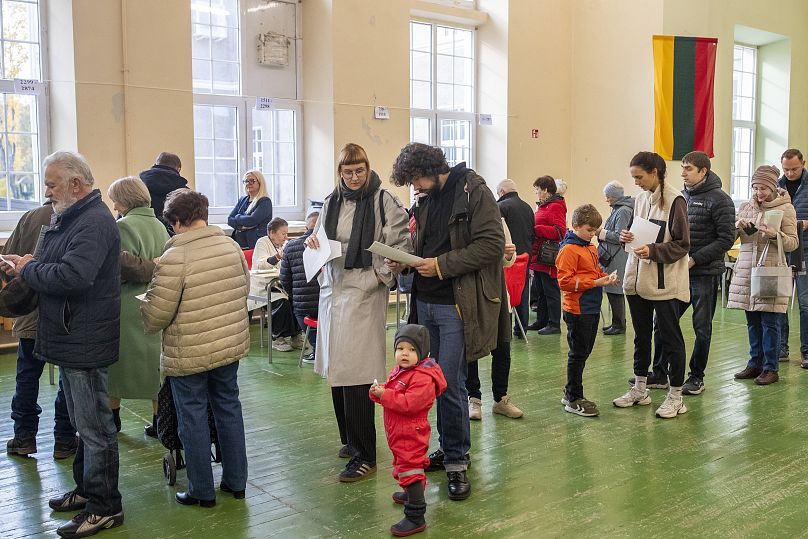On the campaign trail, the Social Democrats pledged to tackle rising inequality by hiking taxes on wealthier Lithuanians to pump more money into sectors like healthcare.
The leader of Lithuania's opposition Social Democrats (SD) will begin negotiations to with other parties to form a coalition government, after winning Lithuania's parliamentary elections with 20% of the vote.
Speaking in Vilnius, Vilija Blinkevičiūtė said the positive results for her party showed that Lithuanians want change.
"It is just the beginning of the road. We don't really know the final result yet, what it will be in the multi-mandate, but the trends are so optimistic. There is still a lot of work to do," she told supporters.
SD took 20% of the vote putting it ahead of the ruling Homeland Union of Prime Minister Ingrida Šimonytė who finished with 18% of the vote.
Coming in third is the anti-establishment Nemunas Dawn at 15%.
On the campaign trail, the SD pledged to tackle rising inequality by hiking taxes on wealthier Lithuanians to pump more money into sectors like healthcare.
National security if also a concern for Lithuania, which is part of the eastern flank of NATO and the European Union and shares a border with the Russian exclave of Kaliningrad, as well as with Belarus.
Lithuania has been a staunch ally of Ukraine and strong critic of the Russian invasion.
Since the start of the war in February 2022, the Lithuanian government has provided military aid to Kyiv with defence minister Laurynas Kasčiūnas saying in September that Vilnius had provided €153 million in aid this year alone.
Lithuania has seen annual double-digit personal income growth and has one of the lowest inflation rates in the 27-nation EU bloc — but many voters don’t seem to be impressed.
"There's a lot of disappointment and discontent among voters," said Rima Urbonaitė, a political analyst at Mykolas Romeris University.
"It is related to numerous crises and shocks and cannot be compensated by economic factors like positive change in purchasing power."
Šimonytė has faced criticism for strict measures during the pandemic, with many complaining that her government didn’t do enough to help companies during lockdown.
Others say thousands of people didn’t have access to health care services.
Šimonytė also has been lambasted for her handling of migrants arriving via Belarus.
The runoff vote is scheduled for 27 October, when the majority of single-member constituencies will vote to choose between the two leading candidates.












